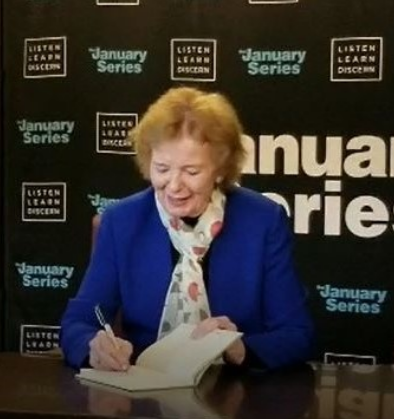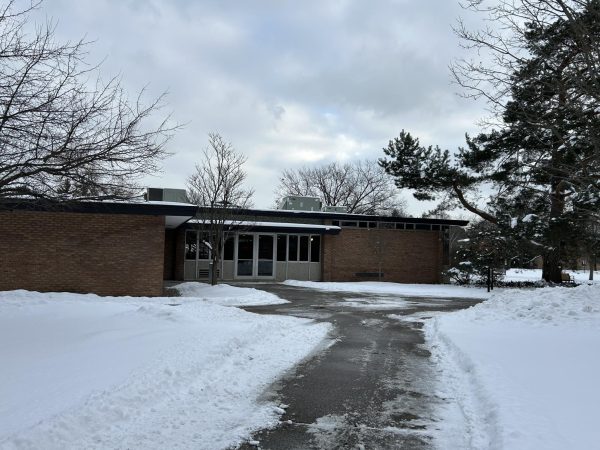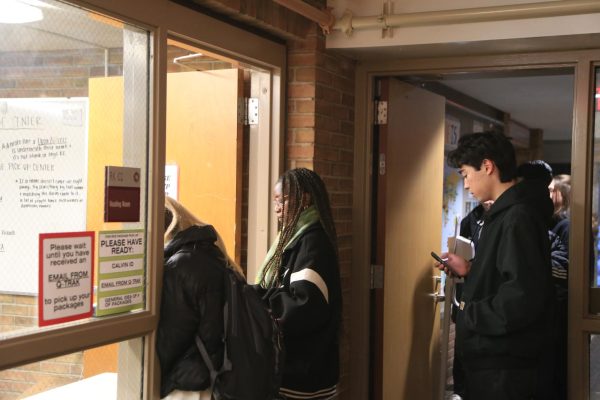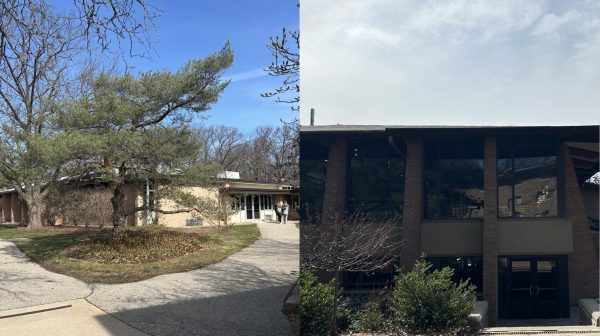Former president of Ireland at January Series confronts climate change

Mary Robison signs copies of her book after her lecture at the January Series.
Former Ireland president Mary Robinson concluded this year’s January Series with a presentation on climate change. Robinson was prime minister of Ireland from 1990 through 1997, and then became the United Nations High Commissioner for Human Rights.
Her lecture focused on the human toll that climate change is causing. During her time at Calvin, Robinson also meet with Chimes to talk about her work.
Robinson stressed the important role that young people have in combating climate change. She said it encourages her to see students “making the issue a personal one, doing something that you wouldn’t have done before and then getting angry with government.”
Currently, Robinson is the head of the Mary Robinson Foundation-Climate Justice.
“The foundation has a focus on bringing human rights and gender into how we deal with climate changes,” she told Chimes. These are themes she refers to many times, as they have become the focus of her life.
Drawing from her experience in government, Robinson talked to Chimes about the role of government in combating climate change. She praised the taxation of carbon, saying, “I think a carbon tax is an extremely effective way of moving us out of what is harming us, which is fossil fuels, into what will help us to power our economies, which is clean energy.”
Robinson also pointed out the need for more leadership on the issue of climate change. “Those with power at all levels — political power, business power — should be doing far more,” she said.
During her world travels, Robinson has seen some of the impacts of climate change firsthand. These experiences prompted her latest book, “Climate Justice: Hope, Resilience, and the Fight for a Sustainable Future.”
“I think storytelling is a compelling way to get a message across,” Robinson said.
Robinson defines climate justice as “the people-centered perspective [on coping with climate change].” She told Chimes that “Another part of climate justice is that those who have been disproportionately affected by climate change, the injustice of it, are also benefiting from the benefits of the clean energy world. And that means getting off-grid energy to the one million people who now can benefit from these off-grid solutions.”
She also pointed out that not all green energy solutions are helpful to the poor.
“You need to ensure that when we’re reducing emissions it’s done in a way that respects human rights…when the decision was made a few years ago to move to ethanol there was a huge boost to corn that drove up food prices and poor communities suffered very badly from that policy,” said Robinson. “It’s really important that all levels keep a focus on the protection of the rights of people affected by climate change, including those affected by climate action.”
Robinson is passionate about the connections between climate change and the welfare of people in developing countries. She explained to Chimes what she hopes the readers of her book will take away: empathy for those suffering because of climate change and a realization of how unjust their suffering is. Robinson shared that at first, many of the people affected didn’t know what was happening to them.
“They thought initially it was God punishing them … Now they realize it’s the lives of rich people.”
“The unfairness of [climate change] is that it’s disproportionally hurting vulnerable people,” she explained to her audience. She has gotten to know some of these people and told Chimes how much they inspire her.
“I would say a lot of my heroes are the people I’ve written about in [“Climate Justice”] who are so courageous in really difficult circumstances and trying to protect their communities from the disruption of climate change,” Robinson said. “I’m really very impressed by the spirit of those who work on the ground on climate.”
*Note: formerly this article named Robinson as the former prime minister of Ireland. This was incorrect and we apologize for the error.










